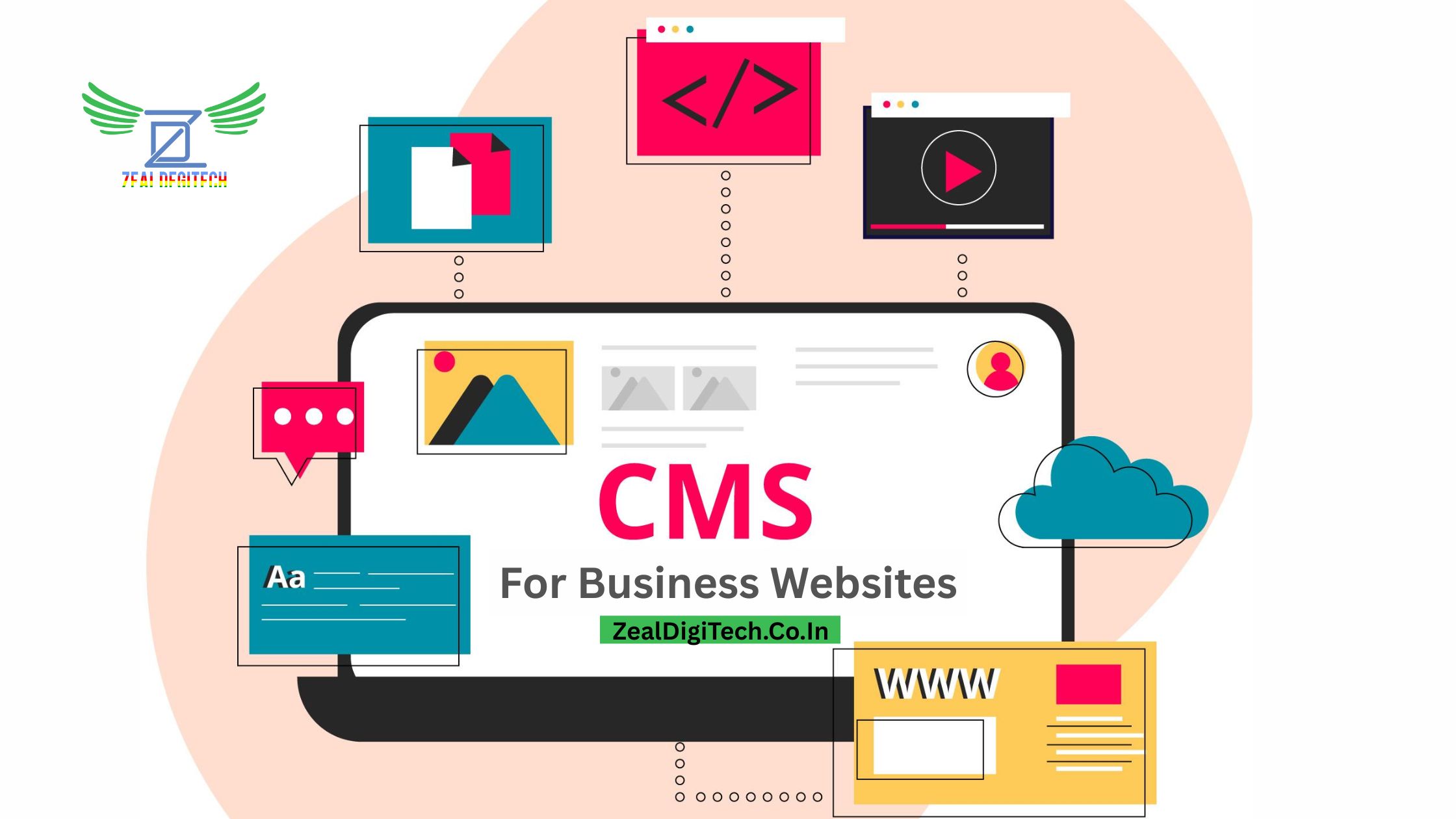The Power of Content Management Systems – CMS for Business Websites
In today’s digital world, online presence is essential. Whether you are a startup, growing business, or large established business, your website is a digital representation of your business. There is a lot associated with the overall online presence of your business, which is why Content Management Systems – CMS for Business Websites are important.
A CMS is a software application that allows content creators to create, manage, and modify content on the website without having specific advanced technical skills. Some common CMSs used by businesses to create or maintain their website are WordPress, Shopify, and Webflow.
CMS for Business Websites
Let’s look at all that a CMS can offer your company and how it will help make updates quicker to do, help with SEO and ultimately make it easier than ever to keep your website up to date.
1. Easy Content Updates—Still No Coding
A huge part of a CMS is its sleek structure and a simple, user-friendly interface. You do not have to be a web developer to create a blog post, change product descriptions or even just upload images. Whether its the dashboards that are easy to understand and use or the drag-and-drop functions, even the most novice user can make live updates to their website.
Benefits:
* Saving costs and time, as you can now make updates in-house.
* Enabling certain promotions, offers, or announcements to go live immediately.
* Giving your marketing and content teams freedom to do their work on their own.
2. Enhanced SEO Capabilities
SEO is critical for visibility online, and luckily the majority of CMS platforms already have SEO features built in or plugins you can install for simple optimization. Here are a few examples:
- WordPress will allow you install plugins in such as Yoast SEO
- Shopify is built to accommodate SEO friendly website from the product and the URL structure
- Webflow allows you to have more control over meta tags and schema markup
Most CMS SEO tools will allow you to:
- Add ALT text, and meta descriptions, and SEO titles in a few clicks
- Optimize for site speed and mobile friendliness
- Automatically create sitemaps and canonical URLs
These features will help your business rank higher in search engines to ultimately drive organic traffic to your website.
3. Cost-Effective Website Management
Paying a developer every time you want to make a minor update can become unaffordable. A CMS lets you do most of the site’s functionality yourself. Whether it’s adding or replacing new information in written or video formats, site owners have continuing control to dramatically limit ongoing costs.
In addition:
- Most CMS platforms have large libraries of themes and templates, which makes it possible to get a site designed on a budget
- Plugin ecosystems allow you to easily add new functionality to your site (such as contact forms, analytics, and so much more) without incurring any developer costs.
4. Upgrade-able
- A CMS expands as your business expands. Need a blog? A storefront? A booking system? With many like WordPress, Shopify, or Webflow, you can start small and readily expand!
- Shopify is ideal for e-commerce businesses that need integrations for payments and inventories.
- WordPress is best for blogs, portfolios, and custom websites that need a lot of flexibility and integrations using plugins.
- Webflow is for design freedom without shortfalls; the CMS capabilities make it a good option for creative professionals and agencies.
- No matter what type of business, there is a CMS solution that will adapt and grow with you.
5. Multiple User Collaboration and Workflow Management
CMS’s provide multiple users the ability to collaborate on a website; each user will have their own roles (Admin, Editor, Contributor, etc.) that can help with workflow management and quality content.
This can help with:
Marketing teams who want to be able to update content regularly.
Designers and developers who want to share the same interest in the layout and function.
Businesses that are dealing with multiple languages or multipage sites.
6. Continuous Updating and Security
Most modern CMSs will update regularly with patches to keep the sites free from vulnerabilities; you’ll also find that, depending on your plugins and best practices, it is extremely easy to be able to keep a CMS secure and running well.
Additionally:
- Backups are mostly automated and part of the package or easy to add on.
- SSL, firewalls, and spam prevention are easy to add-on tools.
Conclusion: A CMS for Business Websites provides you with a digital presence
A Content Management System website development is more than just something that sits on the back end of your website—it’s an enabler for your business! Organizations of all sizes are now able to use platforms like WordPress, Shopify, or Webflow (for the purpose of this discussion, we will refer to all of these as CMS—content management systems) without the availability of a large development team to have greater control of their own digital content, better SEO, and the ability to continue to maintain their site/project easily and affordably after they build it.
Are you willing to manage your web project differently? If you are building a new site or rebuilding an existing site, Visit Zeal DigiTech. Getting a CMS for Business Websites means that you can create an online presence that enables you to be flexible, efficient, and—most importantly—scalable, so you—and your project—can continue to change, grow, and evolve.

